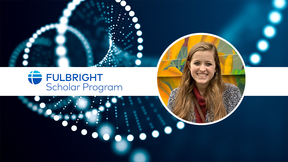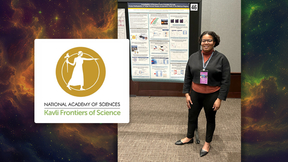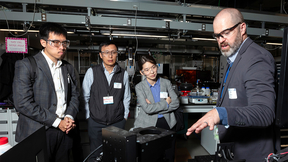Lab mentoring program generates rewarding opportunities for career growth
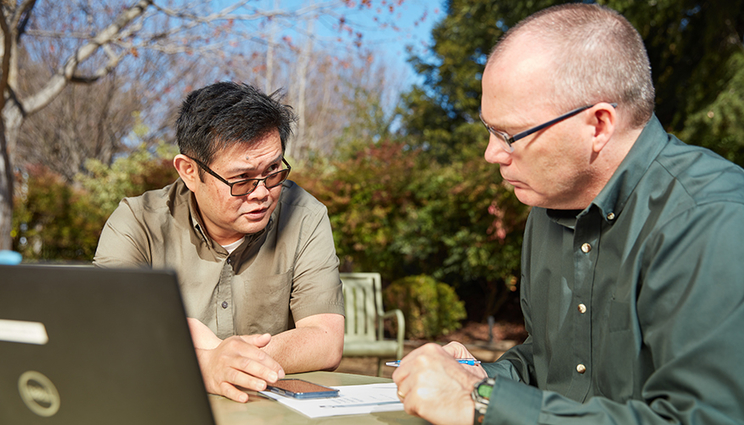 (Download Image)
(Download Image)
Caption: Yanto Mualim and Jerry Wheeler were matched through Engineering’s Mentorship Program just before COVID-19 hit and are pleased to meet in person once again. Photo by Garry McLeod/TID.
Lawrence Livermore National Laboratory’s (LLNL) Engineering mentoring program has yielded many rewarding matchups, not least that of Yanto Mualim and Jerry Wheeler.
Mualim, who works in the Lab’s Environment Safety & Health program, joined LLNL in 2018 with a focus on controls engineering. After two years, as his project wrapped up, Mualim began looking for new opportunities at the Lab, as well as answers to some unresolved questions about technologies, protocols and culture. He discovered the mentoring program and saw the huge value of access to a veteran colleague with whom he could discuss technical, career, interpersonal and situational matters.
Once signed up, Mualim waited six months to be paired with a mentor. It's a typical timeframe, as there are far more employees than mentors available. And the fit has to be right: candidates must be prepared to evaluate a tentative pairing honestly and cheerfully, and try again if learning styles, expectations or personalities don't mesh.
Meanwhile, Wheeler — an 11-year Lab employee specializing in industrial controls and safety interlock systems in LLNL's Laser Systems Engineering and Operations Division (LSEO) — had a habit of helpfulness. An Engineering ombudsman supporting the NIF and Photon Sciences directorate, Wheeler had been meaning to sign up for mentoring as well, largely in gratitude for the guidance he had received from his colleague in LSEO, Stanley Sommer, years before. But before he could get around to volunteering, he was tapped by Engineering mentoring coordinator Beth McCormick and paired with Mualim.
Wheeler and Mualim reviewed the practical and judicious tips on the Lab’s internal mentoring website before plunging in.
"Engineers like structure," Wheeler explained. "The program provides clear direction and practical assistance to get you going and keep the relationship meaningful."
They held their introductory meeting just before COVID-19 hit, then switched to online meetings for the duration of the pandemic.
Mentoring is a tailored and efficient way for an employee to obtain technical and professional guidance and check-ins. Mentors are well-positioned to recommend training, pass along news and networking opportunities and share wisdom borne of Lab experience. Whatever the problem, the mentor comes alongside to see it through.
"I remember one particular challenge when I was introducing a computer virtualization to my current monitoring-system project,” Mualim said. “I also had difficulty deciding the format of a full functional test plan to launch the monitoring system. Jerry shared technical information on the adoption of computer virtualization at the National Ignition Facility and provided a sample of a full functional test plan to consider.
"His support encouraged me to propose the adoption of proven modern technologies for current and future projects,” Mualim continued. “He also gave me a concrete example to emulate in my own journey toward mentoring."
Wheeler has enjoyed his mentoring role and exhorts anyone interested to give it a try.
"If you're a person who likes to make a difference, it's tremendously rewarding,” Wheeler said. “The program is well-organized — it’s loaded with resources. You're not on your own. And you'll really help someone."
Mualim added: "The benefits of the mentorship program exceeded my expectations. I encourage colleagues to participate and gain an advocate for their personal and career development at LLNL. Be open minded and don’t get discouraged if the match doesn't work out the first time."
Mualim also is motivated to pay it forward. He signed up with the Lab’s Abilities Champions Employee Resource Group to mentor students and colleagues with disabilities.
"I have personal experience in helping family members with diverse challenges thrive, plus I'm new enough to remember it's tough to find your feet at the Lab, and what was really helpful,” Mualim said. "I'm thankful for my positive experience and motivated to share it as best I can."
– Margaret Davis
Contact
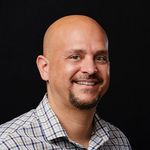 Jeremy Thomas
Jeremy Thomas
[email protected]
(925) 422-5539
Tags
EngineeringCareers
Featured Articles
